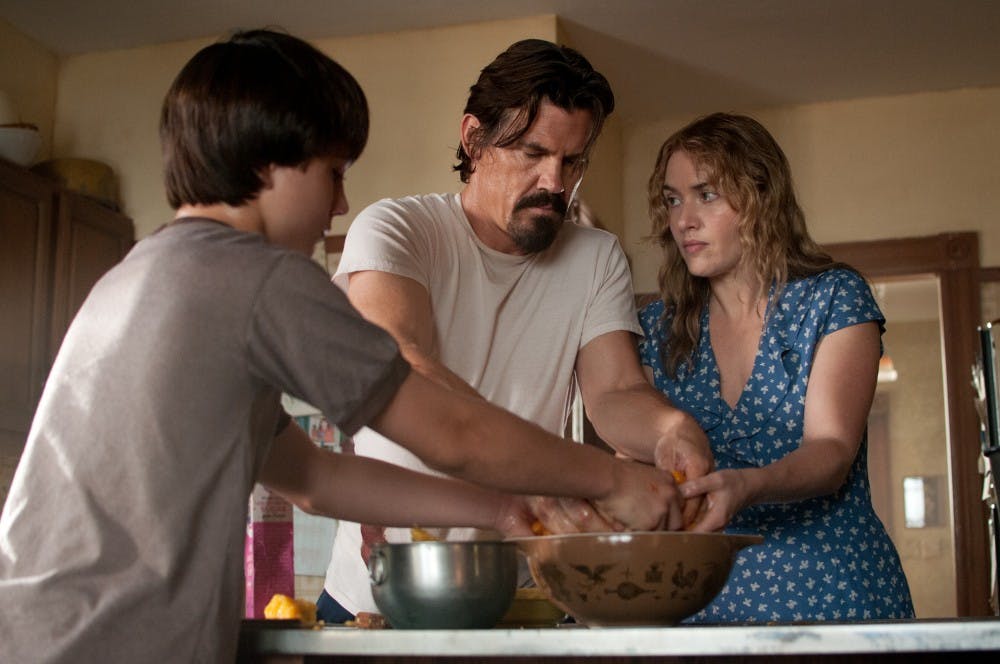The suburban sprawl depicted in Jason Reitman’s “Labor Day,” adapted from Joyce Maynard’s novel of the same name, belies an uncharacteristic seriousness — uncharacteristic namely for Reitman’s penchant for dry, smart comedies that aren’t baked with a glowing sensibility like “Young Adult” and “Up in the Air.”
The film is set in New Hampshire. Young Henry (Gattlin Griffith,”Green Lantern”) shares his life with his agoraphobic mother Adele (Kate Winslet, “Revolutionary Road”). Henry now dedicates most of his time to the resourceful care of his mothers crippling fear of the outside world.
Henry and Adele go shopping, absently traversing the supermarket, when supposed escaped convict Frank (Josh Brolin, “Oldboy”) appears from back room, grabs Henry and tightens his grip on him. They soon scuttle off with Adele in a modest station wagon to a house sequestered away from the police so that Frank can lay low until he can make a grand escape.
For much of “Labor Day,” there’s very little labor involved. Brolin’s ability to portray Frank in near vegetal states of stillness constricts the story to the tiny house. Overactive emotional displays are not what is photographed in “Labor Day,” nor is that the intent.
What transpires a sort of shifting timelessness in numerous flashbacks between Frank’s troubled marriage, the cause of his eventual conviction for prison time, and what eventually draws Adele out of her shell, which is Frank’s ability to assume roles as a father and friend.
Reitman’s direction attempts to realize the tension of Frank’s metaphorical imprisonment in Adele’s household, raising stakes in increasingly rote scenarios of risk. These scenarios pit Adele in progressively unlikely positions with nosey neighbors for someone who is deathly afraid of the outside world. The largest flaw of “Labor Day” is the inability to pair down to its strongest elements, namely the interplay between Henry, Adele and Frank.
If “Labor Day” should be for anybody, admirers of Sam Mendes and his cynical “American Beauty” will find much to like, sans cynicism, a lighter “Revolutionary Road.” Those whom enjoy Henrik Ibsen’s rural plays might find suitable enjoyment out the film’s agile ability to temper itself when needed.
Throughout the film, there’s an inability for Adele to move forward. “Labor Day” postulates the possibility that her life is not about changing an equilibrium with the best intentions, but maintaining an equilibrium as an act of Adele’s penance. Laborious as that task maybe, “Labor Day” exceeds in presentation, though falters in execution along the way.
Reitman’s “Labor Day” is a handsomely curated film, though filled with some unwieldy actions that take place, and the conclusion is surprisingly strong, peach pie and all.





